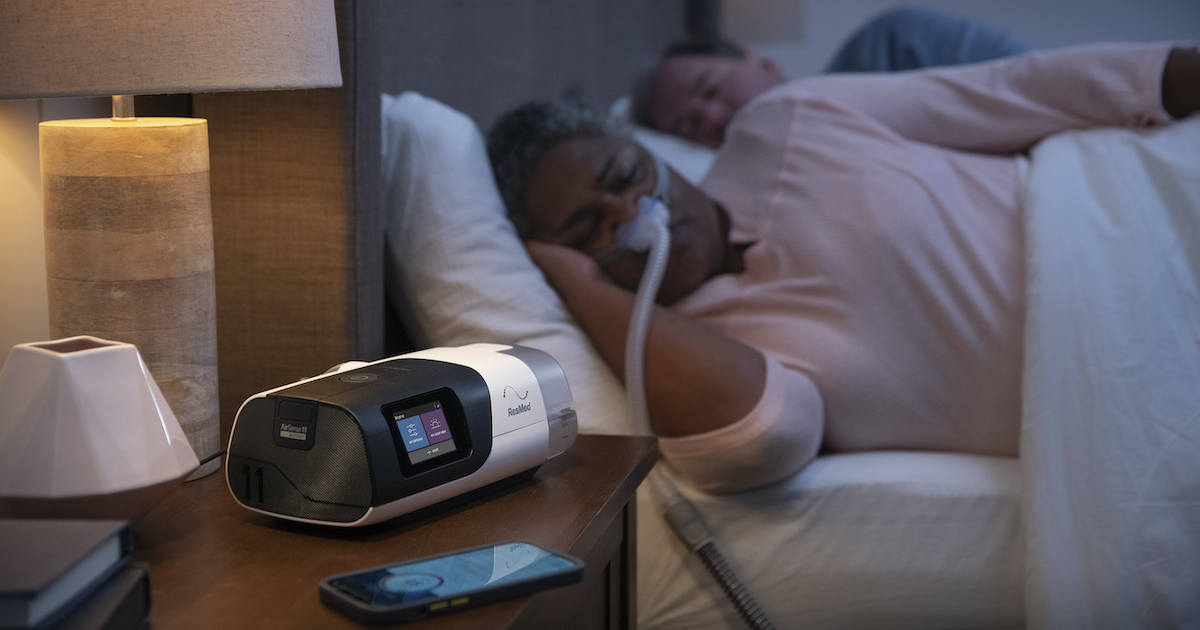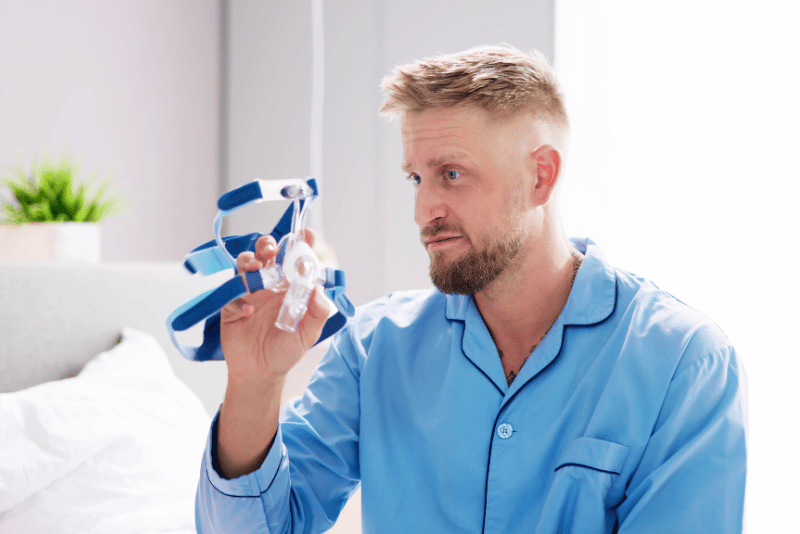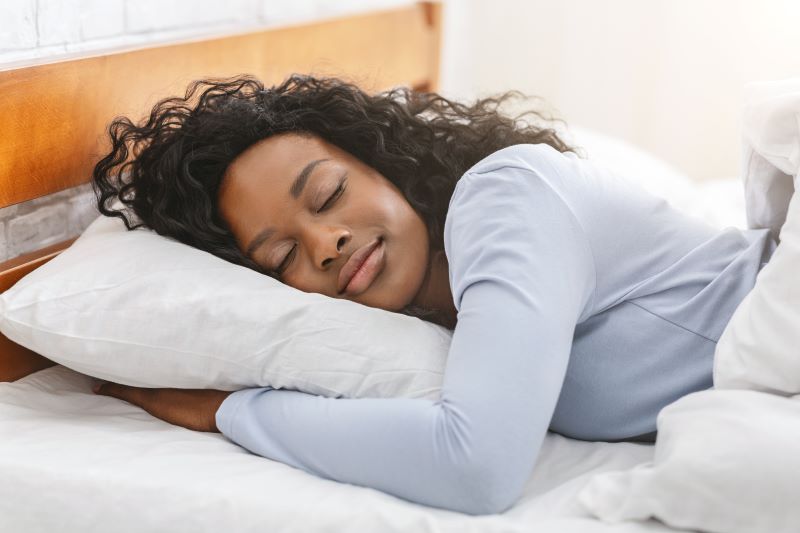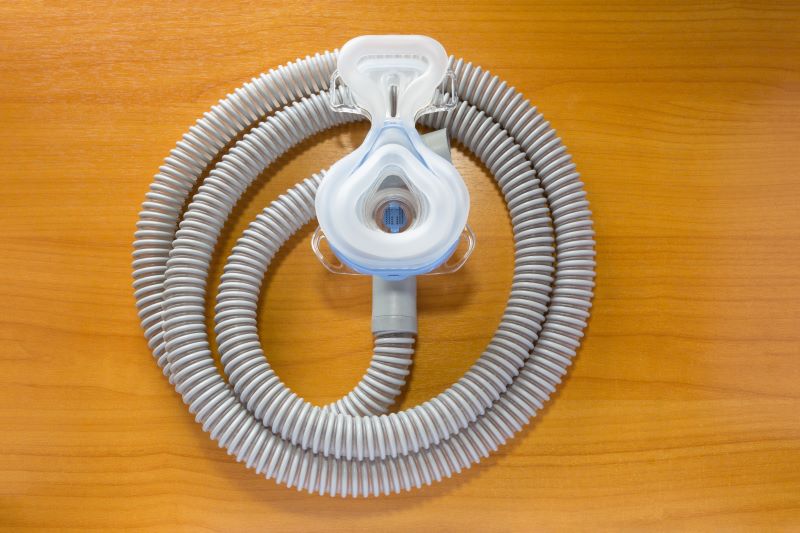If you’ve recently completed a sleep study—either at home or in a lab—and were diagnosed with obstructive sleep apnea (OSA), your provider may have recommended a CPAP machine as part of your treatment plan. That leads many people to the next big question:
“How much does a CPAP machine cost?”
Like other steps in your sleep care journey, the cost of CPAP therapy can vary depending on your insurance, whether you’re paying out of pocket, and the type of equipment that’s right for you. And while the initial investment can seem overwhelming, understanding what’s involved can help you feel more confident, more in control—and ultimately more successful with treatment.
At Parkway Sleep, we believe in being fully transparent about the cost of care. So let’s walk through what CPAP therapy really entails: how much it costs, what’s included, what needs regular replacement, and what you can expect as a new user.
What is a CPAP Machine?
CPAP stands for Continuous Positive Airway Pressure. It’s the most common and effective treatment for obstructive sleep apnea—a condition where your airway repeatedly collapses or becomes blocked during sleep, causing breathing pauses, oxygen drops, and frequent awakenings (whether you realize it or not).
A CPAP machine works by delivering a gentle stream of air through a mask to keep your airway open throughout the night. The result? Better sleep, more energy, improved focus, and better long-term health.
A standard CPAP setup at Parkway includes:
-
The machine itself (the motor and humidifier)
-
Tubing to connect the machine to the mask
-
A mask (nasal, full face, or nasal pillows)
-
A filter (to clean incoming air)
-
Optional heated tubing or travel accessories
So… How Much Does a CPAP Machine Cost?
The cost of a CPAP machine varies based on several factors, but here are some general estimates:
 With Insurance
With Insurance
If you’re using insurance, the CPAP machine and supplies are often covered under your durable medical equipment (DME) benefits. However, coverage can still vary depending on:
-
Whether the supplier is in-network
-
If you’ve met your deductible
-
Your co-insurance or co-pay obligations
-
The DME provider you choose (be sure to ask for cost information)
At Parkway Sleep, we work directly with your insurance to verify your benefits and help you understand what your out-of-pocket cost will be before you receive your machine.
For many patients at Parkway, the out-of-pocket cost ranges from $0 to $2300, depending on where you are in your deductible and what percentage your insurance covers. Some insurances even cover machines or supplies at 100%, regardless of whether your deductible has been met.
 Self-Pay Pricing
Self-Pay Pricing
If you’re uninsured, expect to spend:
-
$800 to $1,200 for a high-quality CPAP machine
-
$100–$200 for a mask
-
$30–$100 for tubing, filters, and humidifier chambers
At Parkway Sleep, we offer competitive self-pay bundles that include everything you need to get started—including setup and support from our experienced team.
What About CPAP Rental or Compliance Programs?
Most insurance companies require a compliance period—usually the first 90 days—before they will pay for the machine in full (subject to your plan’s specific benefit breakdown). During this time, they monitor your usage to ensure you’re using the machine consistently (typically a minimum of 4 hours per night, at least 70% of the time).
If you meet the requirements, your insurance continues coverage, subject to your plan’s benefits. If not, you may be responsible for the full cost of the machine. Parkway Sleep helps walk you through this process to make sure you understand how your coverage works and what’s required of you.
Important note: Some durable medical equipment (DME) providers will only provide you with a cost estimate for the first one to three months. During your cost research, be sure to ask for the full estimated cost of the machine, or you could end up with a surprise bill later on.
What Does It Take to Use a CPAP Machine?
Getting the machine is just the beginning. CPAP therapy is highly effective, but success depends on being consistent and setting yourself up for comfort. Here’s what that means in practical terms:
1. Wearing the Mask Every Night
It can take a few nights—or even a few weeks—to get used to wearing a CPAP mask. You may need to try different styles to find one that fits comfortably and doesn’t leak. The good news is that once your body adjusts, you’ll likely notice a huge difference in your sleep quality and energy levels.
2. Keeping Equipment Clean
CPAP equipment needs regular cleaning to prevent mold, bacteria, and allergens. This includes:
-
Washing the mask and tubing weekly (or more frequently if you’re prone to allergies)
-
Changing the water in the humidifier daily
-
Using distilled water to prevent mineral buildup
3. Replacing Supplies Regularly
Over time, CPAP supplies wear out or become less effective. For best performance and hygiene, most insurance plans recommend the following replacement schedule:
-
Mask cushion/pillows: Every 2 weeks
-
Full mask: Every 3 months
-
Tubing: Every 3 months
-
Filters: Monthly
-
Headgear: Every 6 months
-
Humidifier chamber: Every 6 months
At Parkway Sleep, we help you stay on schedule with automated supply reorders or reminders—so your equipment stays clean, comfortable, and effective.
What If I Struggle With CPAP?
You’re not alone. Many patients face challenges in the first few weeks—but support makes a huge difference. That’s why Parkway Sleep offers:
-
Ongoing follow-up from our team
-
Mask refits or style changes
-
Humidifier adjustments to reduce dryness
-
Pressure adjustments if the airflow feels uncomfortable
-
Alternatives, like BiPAP or oral appliance therapy, if needed
Our job isn’t just to hand you a machine—it’s to make sure it works for you.
Why CPAP Therapy Is Worth It
We get it—sleep studies, consultations, and CPAP therapy can add up. But untreated sleep apnea carries its own cost: poor sleep, increased risk of heart disease, stroke, high blood pressure, weight gain, and even memory issues. CPAP isn’t just about snoring less—it’s about living longer, feeling better, and showing up fully in your life.
Why Buy Your CPAP Machine from Parkway Instead of Online?
You may find CPAP machines for sale online at what appears to be a lower price—but there’s a lot more to successful CPAP therapy than just the machine itself.
You also may find that when you look up pricing from online retailers, the cost of the supplies you need are not included in the listed price. That means you’re actually comparing apples to oranges. Be sure that when you are looking online, you are also pricing the required supplies–masks, tubing, filters and headgear and probably not included in that listed machine cost!
At Parkway Sleep, when you get your CPAP machine and supplies through us, you’re not just buying equipment—you’re gaining access to a team that’s committed to your success. Here’s why that matters:
 Personalized Setup & Training
Personalized Setup & Training
When you receive your machine from Parkway, we walk you through how to use it step-by-step—including how to put on your mask correctly, how to fill and clean your humidifier chamber, and how to navigate the machine’s settings. That kind of guidance is rarely offered by online retailers. We also set the machine to your prescribed pressure for you, so you don’t have to guess whether you’re getting the therapy you need.
 Ongoing Support and Adjustments
Ongoing Support and Adjustments
If you have trouble tolerating the pressure, experience leaks, or feel discomfort with the mask, we’re just a phone call or visit away. Our team will work with you to make sure your therapy is comfortable and effective. Online sellers typically leave that part to you.
 Insurance Coordination
Insurance Coordination
We handle insurance verification, authorizations, billing, and documentation so you don’t have to stress over codes and claims. If you buy online, you’re usually paying upfront out-of-pocket, and it may not count toward your deductible or be reimbursed.
 Easy Supply Replacements
Easy Supply Replacements
Parkway helps you stay on track with supply replacements—whether you’re insured or paying out of pocket—so your equipment continues to work well. With online orders, it’s easy to forget or miss essential replacements, which can reduce the effectiveness (and hygiene) of your therapy.
 Local Accountability & Expertise
Local Accountability & Expertise
We’re part of your community. You can call us, talk to a real person, or come in person for help. And our team knows sleep—we’re not just selling machines, we’re delivering long-term care from board-certified providers and trained specialists.
What to Expect from Parkway Sleep
At Parkway Sleep, we walk with you every step of the way—from your initial consultation, to diagnostic testing, to getting and using your CPAP machine. You’ll always know what’s next, how much it will cost, and how to get help when you need it.
We’ve served North Carolina for over 20 years with a commitment to affordable, compassionate sleep care, both in-office and through telehealth.
Ready to Get Started?
If you’ve recently been diagnosed with sleep apnea—or are just beginning to explore what’s behind your sleep issues—we’re here for you.
 Call us today at 919-462-8081
Call us today at 919-462-8081
 Visit us in person or schedule a virtual consultation HERE
Visit us in person or schedule a virtual consultation HERE
____________________________________________________________________________




 Contact us online or click
Contact us online or click 









